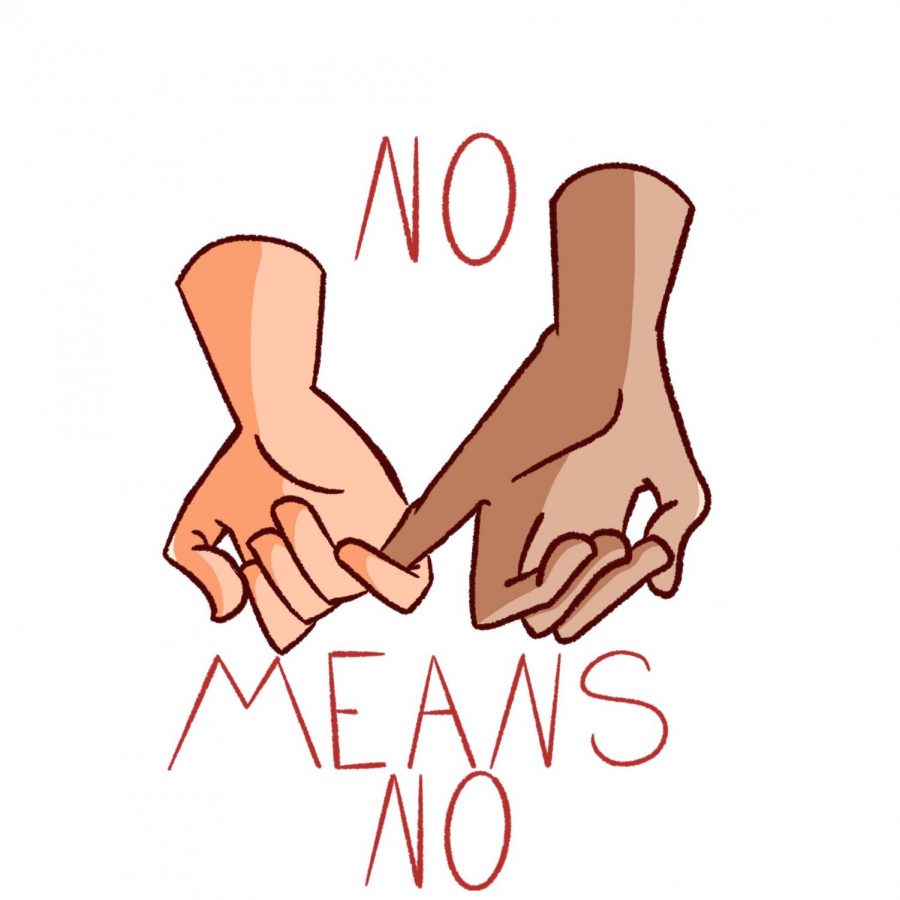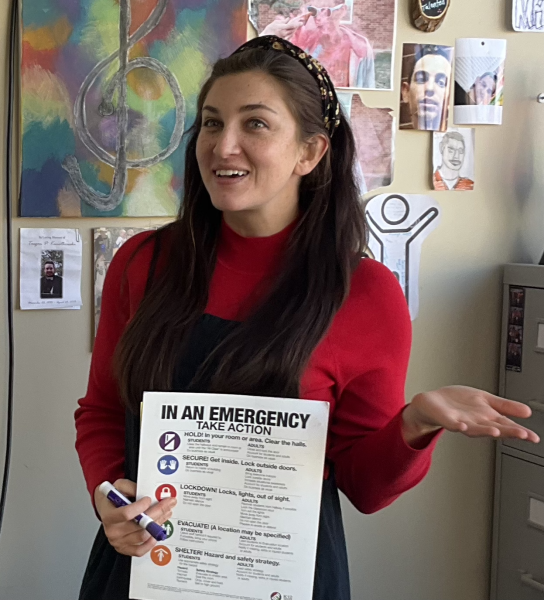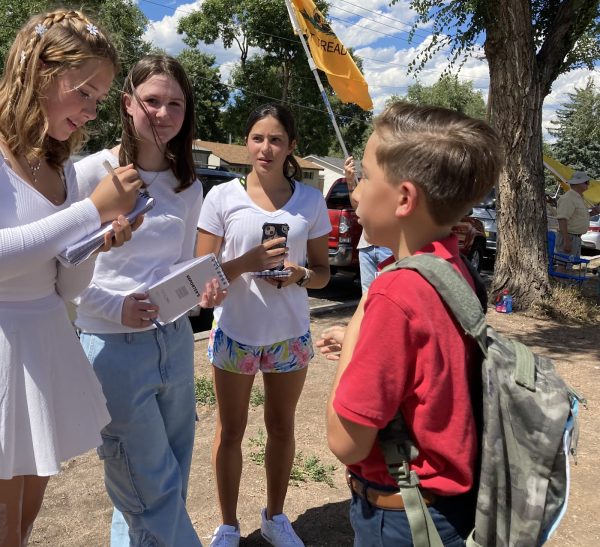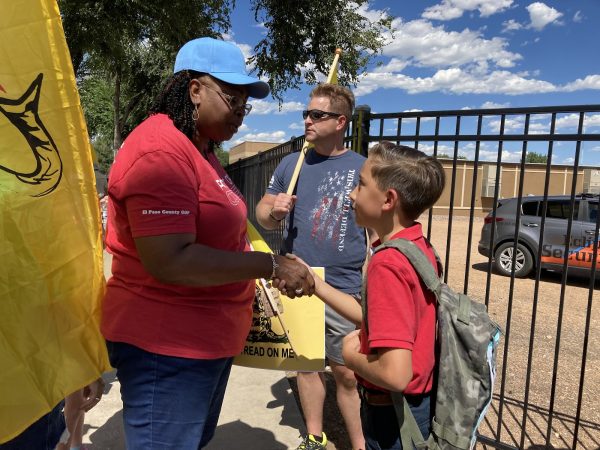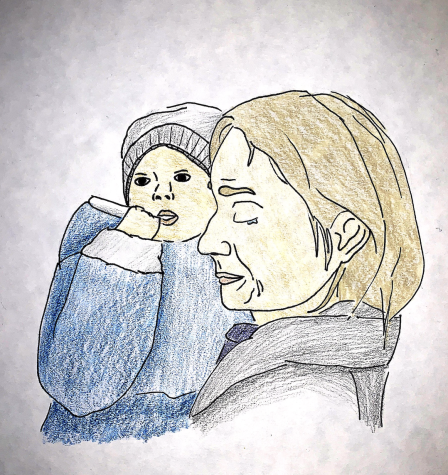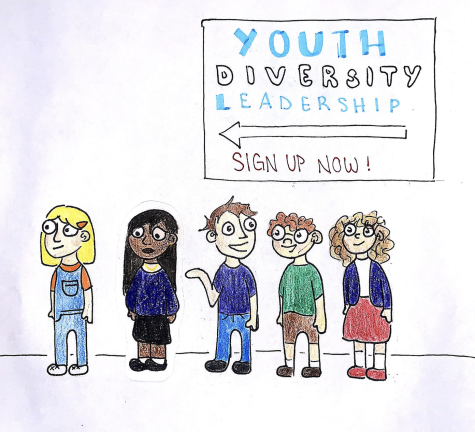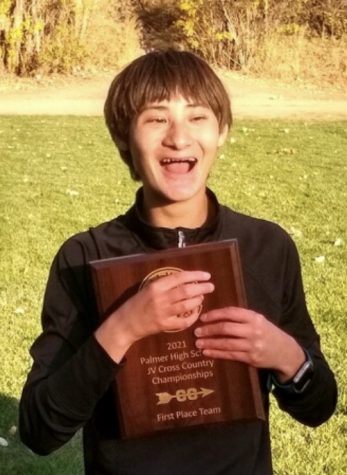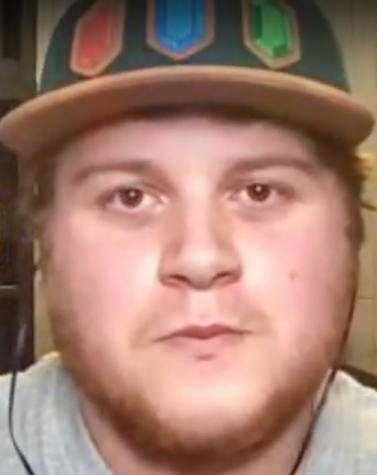The Sex Education I Wish I Had
Artwork Credit: Sia Jamiolkowski
What sexual education courses are missing are r
My friend group in junior high consisted of prepubescent, horny males with little sprouts of unshaven facial hair and stubby heights, typical for pre-teens in the limbo years.
What wasn’t normal was they touched my chest and bottom, parts of my body that should’ve never been grazed at that age.
Bribed with a stuffed animal and the prospect of inclusion to their group, they groped through skinny jeans and training bras and did as they pleased without consent
Yet, I wasn’t told this was wrong and I didn’t understand this was sexual assault. What they did felt ritualistic—my initiation into the private sector of cool, edgy kids.
I’m convinced this wouldn’t have happened if I wasn’t preached to about chastity like it was the gospel, and sanitary napkin demonstrations serve as a euphemism for real conversations about sexuality.
Don’t get me wrong. Health classes do provide important information like infections, pregnancy, effects of alcohol, and peer pressure. But, human sexuality is much more than biological urges. It has psychological, social and individual implications.
This article is not about condoms or free love. And purity rings are not going to save one from sexual harassment. These classes meant to educate and protect me proved ineffective in times of dire need. While I believe abstinence is an important self-promise, these same abstinence contracts and consent forms tend to be faulty coupons with expirations.
Acknowledging and understanding the complexities of human sexuality that a simple solution of abstinence or saying “no” will not fix. The belief that consent is as simple as “yes” or “no” fails to see its implications. For some, “no” means “women get to decide, and she needs to be won over or manipulated.” The best course to abstinence is a pragmatic approach, not a mandate.
It’s saddening to watch schools, churches, and parents edge around discussions about relationships and sex. I know what deodorant is, and I don’t need to watch a bloody, painful C-Section birth from the 80s on VHS again.
Ignoring the real scope of human sexuality is impossible, especially for pizza-faced teenagers budding with pure hormonal desire. So why is it treated like a taboo? Why is it treated as something gross or inherently wrong?
It’s time for the cultural sentiment that boys will be boys to be put to rest. It’s another hideous example of letting boys become men under the false pretenses that in order to receive adulthood, he needs to press his hands against a female without consent.
Alarming cases like Brock Turner, the lawsuit about a 19-year old Stanford University freshman raped 22-year old Chanel Miller when unconscious behind a dumpster, portray the disparity of educating proper consent and personal responsibility.
Turner’s father read a letter to the judges, exasperating that his son was innocent from his rape charges because he “was struggling to fit in socially,” and he “did not like being so far from home.” Yet another bland excuse for the right of passage.
Turner’s punishment of a sparse six months in jail and three years probation, light rape sentences, makes the reporting of future assault cases unlikely and screams for the need for authentic health and sex education.
The line between teens will be teens and sexual assault must be clearly defined. Statements such as it’s just a joke, you’re too sensitive, and everyone else is doing it appropriates decades of harassment and violation against assault victims.
A study led by the Colorado Health Institute found that Colorado is the only state without a health education mandate, and is one of 26 states without a sexual education mandate. In my high school, over 84% of students identify abstinence as the second most promoted concept in health class. Surprisingly, some students believe that one can get an A in health class simply by practicing abstinence.
It’s disappointing knowing that other girls will be violated just like me due to the lack of directives and courageous conversations meant to protect us. Health educators can teach me all they want about ripping wax paper off pads, but I won’t know what to do when someone’s trying to rip my jeans off.
In a study done by Columbia University, undergraduate women who took sexual education classes before college were 50% less likely to be sexually assaulted later in life. Female students who had an abstinence education saw no decline.
Colorado’s Department of Public Health and Environment states that in Colorado, 1 in 3 people experience sexual violence in their lifetime, 80% of which occurs before age 25.
Our state has the opportunity to change these shockingly high statistics. Since 2013, Colorado has established a grant for Comprehensive Sexual Health Education (CSHE), though the grant is application-based and is not enforced. To date, no state has claimed the funding, furthering the extensive issue of teenagers not receiving an accurate and useful health education.
Educators and parents responsible for the next generation have done little to bring the gears of sexual abuse out of rotation. Answering where babies come from with a sombre When a mommy and daddy love each other… is a slap to the many wounds assault victims have suffered through. Sexual interaction isn’t always romantic, nor consented.
We are not taught that intercourse ranges a wide variety of emotions and human experiences. We are taught that it is strictly born out of love and a desire for reproduction.
Instead, health education should focus on cultural awareness, personal responsibility that is not contingent upon gender, setting clear expectations and boundaries, communication, protection and privacy, and respect for personal boundaries.
This is what the birds and the bees failed to teach us. They left out the facts. No curriculum should exclude material that will lead to healthier futures.

